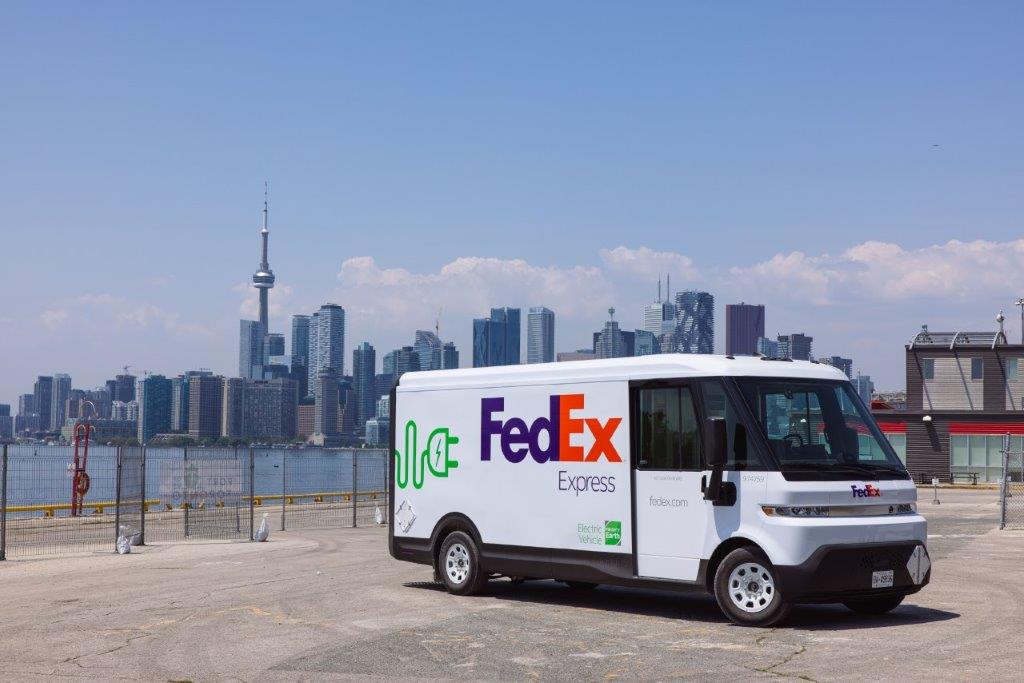Pembina Institute to calculate Toronto-area EV charging needs and grid readiness
The Pembina Institute will work with FedEx to map out the charging needs and grid readiness in the Greater Toronto and Hamilton Area (GTHA) to support the commercial trucking industry’s transition to zero-emission transport.
Working with the Rocky Mountain Institute (RMI), the think tank plans to release a comprehensive charging infrastructure action plan for the GTHA upon completion of its research and analysis phase. This will help decision makers in determining ideal locations for commercial freight charging and refueling stations, the Pembina Institute claimed in a release.

The organization will use RMI’s new GridUp data platform to carry out its research, and will work with municipalities, policymakers and other stakeholders. FedEx has said it will convert its entire parcel pickup and delivery fleet to zero-tailpipe-emissions vehicles by 2040.
“Fleet electrification is a key pillar of the FedEx roadmap to carbon-neutral operations by 2040 and our commitment to deliver a more sustainable future for all,” said Dean Jamieson, vice-president of operations, FedEx Express Canada. “Our commitment to the Pembina Institute will bring RMI’s advanced grid planning tools to the Greater Toronto area, empowering key players in the electrification ecosystem with information needed to support a wide-scale transition to EVs.”
“We’ve been witnessing the gradual shift to fleet electrification, which is likely going to go into overdrive in less than 10 years,” added Adam Thorn, transportation director, Pembina Institute.
“This means enormous changes in the types of trucks and buses on the road and the infrastructure needed to power these vehicles. Given the timelines, planning for charging locations and energy demand needs to happen as soon as possible and decisions need to be data driven. The support from FedEx for this project shows how the private sector can be a leader in some of the most important climate actions we can take to realize a net zero-carbon future.”
FedEx Express Canada has more than 1,000 low-emission vehicles in service, and has deployed the first 50 of its Zevo 600 electric delivery vehicles from GM subsidiary BrightDrop.
The Pembina Institute says that electrifying all 4 million U.S. and Canadian vans and step vans would slash GHG emissions by 43.5 million tonnes a year, while electrifying all medium-duty box trucks would save more than 7.6 million tonnes of GHG per year.
Have your say
This is a moderated forum. Comments will no longer be published unless they are accompanied by a first and last name and a verifiable email address. (Today's Trucking will not publish or share the email address.) Profane language and content deemed to be libelous, racist, or threatening in nature will not be published under any circumstances.